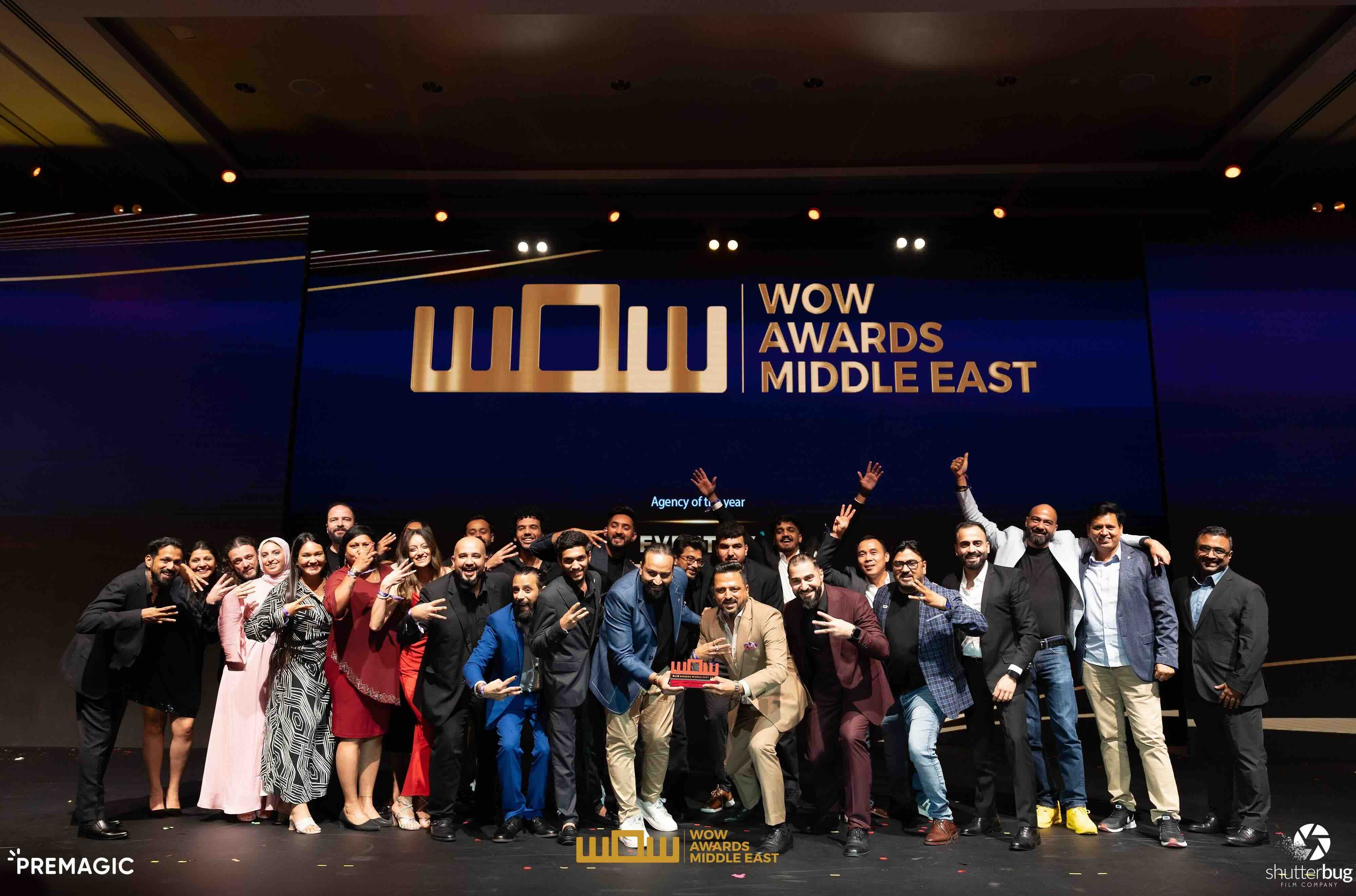News - Advertising
Is the digital agency dead?
by Iain Akerman
January 3, 2022
.jpg) Advertisement
AdvertisementWhat is the relevance of digital only agencies in a world where any agency worth its salt is now digital first? It’s a question that has been thrown our way on a number of occasions, mostly by multinational agencies focussed on increasing their market share. So we thought we’d try and find some answers.
“As the question implies, it’s not about the ‘only’ but rather about the ‘first’,” says Tim Baker, managing partner of AKQA MENA. “Consumer demand dictates that digital will certainly play some role (and often the main role) in a consumer’s purchase funnel. Whether that’s to find it, research it, compare it, consider it or actually buy it, digital has a fundamental role to play. Therefore any agency worth their salt needs to have expertise (or at least a point of view) surrounding these digital action areas to create meaningful communication that cuts through. The delicate balance for an agency is how they define their ‘super power’ and what portion of the advertising pie can that afford them.”
Where you stand in this debate is largely dependent on who you work for. If you’re plying your trade at a multinational agency with a full-service offering, the need for digital agencies is largely redundant. After all, as Diala Hamad, media director at iProspect, says, all agencies are investing in digital resources, innovation, tools, learning, and data in order to enhance their capabilities. Of course, many agencies claim to be multi-disciplined; it’s “how well those services are integrated and work together that will drive value for brands,” says Hamad. Still, the belief is that truly integrated networks can deliver far better results for clients.
Meanwhile, independent digital agencies often look on in disbelief. “What is the relevance of an old school legacy agency in the digital first age,” asks Fadi Khater, founder and managing partner of Netizency, flipping the question. “Working with them only means that part of your retainer goes to feed the salaries of archaic hierarchies and ad moguls who do not understand the essence of digital. Despite all agencies claiming they are digital first, they still have their old school teams who are trying to change and adapt, whereas digital agencies are born in the digital age and are built in an agile way that can easily understand, adapt to, and deliver on today’s evolving digital requirements.”
“It’s fair to say that we are all dying from ‘death by digital RFPs’ in the MENA region.” --Tim Baker, managing partner, AKQA MENA
It’s that old multinational versus independent chestnut. According to Khater, digital agencies “can identify and jump on a trend before a larger agency. They can also be the first to develop content for a new technology or social feature”. The benefit of digital agencies is that “because they are newer and smaller they tend to be more hungry, accommodating, agile, and innovative (and aware of the latest happenings in digital)”.
Even the big networks admit there are areas where digital agencies can thrive. For example, in the post-pandemic world the region has witnessed a trend of customers becoming savvier and more immune to traditional digital marketing techniques, says Hamad. Therefore “having an agency specialised in customer experience, who can rapidly adapt to changing behaviours and deliver relevant, people-based marketing with data at its heart is where brands will see the most value,” she says. “Consumers are putting high expectations on businesses and brands to hit the right tone, and this is where specialised CXM [customer experience management] and digital creative agencies can help their clients meet those expectations.”
“We need to focus on quality over quantity, delivering truly insight driven ROI.” --Diala Hamad, media director, iProspect
For Baker, specialities are more relevant than ever. “Digital has driven a far more diverse, real-time and technically challenging canvas on which we must paint,” he says. “However, the Mona Lisa was not painted in one day. Agencies have certainly broadened their pallets to accommodate a wealth of specialisms their clients demand. But agencies need to be cognisant of their core strengths and know when to ‘outsource and oversee’ in order to deliver on their idea or creative solution. It can’t all be done in-house and often collaboration with external specialists elicits a far more polished and exciting creative end product.”
Why is this all important? Because the pandemic has accelerated digital usage and increased both brands’ and consumers’ reliance on digital platforms. For example, a recent study conducted by Wunderman Thompson, called ‘The Future Shopper Report’, revealed that 85 per cent of people living in the UAE are more comfortable using digital than before the pandemic. “However, it takes more than creating digital content to be a digital first agency,” says Mona Hassanie, strategy director at Wunderman Thompson UAE. “As digital becomes a more fragmented environment and commerce takes centre stage, only agencies that are able to reimagine their digital approach will thrive. And that’s not limited to digital only agencies. In fact, agencies that have full capabilities have the potential to deliver a better digital approach by leveraging their full service offering expertise.”
According to the Wunderman Thompson report, over 70 per cent of respondents in the UAE wished brands communicated seamlessly with them across different channels. Not only from an offline to online perspective – even in digital there’s friction between one digital touchpoint and another, says Hassanie. “That means for instance that people are experiencing fun or aspirational content through a brand’s TikTok challenge or influencer content on Instagram, but when directed to the e-commerce, the experience becomes completely different, lacking synergy, inspiration, and consistency. That’s a reflection of the established perception that social media is an inspiration touchpoint and ecommerce a sales-driven one.”
“In a fragmented approach, we miss the chance of building a single association in people’s mind and delivering a memorable experience,” adds Hassanie. “By saying different things in different ways in different touchpoints, we end up not saying anything. This is a real customer centric challenge that agencies with a strong digital focus should try to address.”
“As digital becomes a more fragmented environment and commerce takes centre stage, only agencies that are able to reimagine their digital approach will thrive.” --Mona Hassanie, strategy director, Wunderman Thompson UAE
Behind all of this lie other – arguably deeper – concerns, not least market immaturity. For example, if we compare Dubai to Los Angeles, says Baker, agencies operating within the former tend to receive RFPs that are seeking a ‘digital agency’. What that often means is a social led agency. Why? Because a) many clients fail to understand that digital spans more than just social posts; and b) as clients in the Middle East and North Africa are often distributors, they are looking for a low-cost solution. “That often translates to an extremely humble social retainer that has negligible impact on their business results,” explains Baker.
In Los Angeles, he adds, it’s far less likely that an RFP will dictate either digital or social. It is more likely to articulate a business problem that agencies can help solve. “So, is the digital agency model dead? Absolutely not,” insists Baker. “But it’s fair to say that we are all dying from ‘death by digital RFPs’ in the MENA region.” Baker’s hope is that brands will be “more realistic about what our expertise costs” and will understand that “digital and non-digital thinking will always be woven into to our recommendations and creative solutions”.
“What is the relevance of an old school legacy agency in the digital first age.” --Fadi Khater, founder and managing partner, Netizency
Client fixation on social media is problematic. “If you work in advertising, you have most probably received a brief in the past year from more than one of your clients that had no ask besides doing something on the social platform of the time,” says Hassanie. “But by wanting to take part in what’s trendy, bets are sometimes placed on such platforms under the hope or belief that short-term online campaigns can stand alone. This drives brand leaders and ad professionals to think tactically, one activity at a time, rather than at a brand story level – thinking touchpoint first, rather than consistency and even longevity.”
Hassanie believes this is the result of different factors. Firstly, the time constraints related to planning, developing, and testing long-term campaigns. Secondly, the belief that social platforms matter the most for consumers and therefore format matters more than content. Thirdly, the belief that you can reach more people faster, and, fourthly, that short-termism leads to quick sales peaks. As a consequence, instead of building brands, the focus has shifted to producing campaigns. “We need to build brands again,” insists Hassanie.
She is not alone in her thinking. “We need to focus on quality over quantity, delivering truly insight driven ROI,” says Hamad. “Agility is absolutely paramount. The pace of change is not slowing down and it is the agencies who invest in continuously growing their capabilities and knowledge, being pro-active, embracing the change, developing their skills and applying all of this in their day to day that will thrive.”
In truth, clients will continue to call on both agency networks and highly specialised independents as and when their needs require. “The most suitable model is one that positions agencies not only as a single discipline supplier but as a strategic partner that is able to help from a full picture perspective,” says Hassanie. “Clients need more and more an integrated agency that has multidisciplinary teams and that is reflective of some of the key mergers that are already happening in the ad world. But in today’s reality, clients still have to work in a fragmented model with more than two to three agencies – in such a context, real collaboration between clients and agencies is the way forward.”



.jpg)


.jpg)






.jpg)




